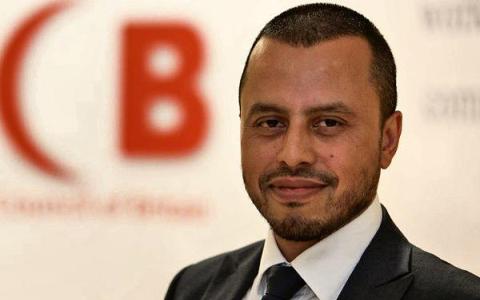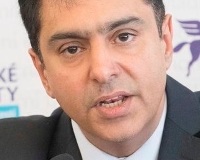ANALYSIS Splits between Muslim groups and government threaten Prevent
by - 16th November 2016
 RELATIONS between the government and the UK’s leading Muslim body, the Muslim Council of Britain (MCB) have broken down, according to the independent reviewer of anti-terror legislation.
RELATIONS between the government and the UK’s leading Muslim body, the Muslim Council of Britain (MCB) have broken down, according to the independent reviewer of anti-terror legislation.
There is ‘no dialogue’ between the government and the umbrella body for Muslim communities, David Anderson QC told the BBC Today Programme on 6 October.
MCB General Secretary Harun Khan confirmed he had had no communication from government since his appointment in July.
The MCB has refuted claims it is launching its own fully-fledged alternative to Prevent.
But a recent press release criticised the government for ‘consistently failing to engage with counter-terrorism ideas from Muslims communities’.
The council recently suggested that a more ‘grassroots-led response’ to terrorism could offer an effective alternative to the government's current work.
Links
 However, speaking to Lapido Media, Haras Rafiq, CEO of Quilliam, the world’s first Muslim anti-terror think tank, which is regarded by some Muslims as too close to government, said the council was not as representative of Muslims as it claimed.
However, speaking to Lapido Media, Haras Rafiq, CEO of Quilliam, the world’s first Muslim anti-terror think tank, which is regarded by some Muslims as too close to government, said the council was not as representative of Muslims as it claimed.
It could not be brought to the government's counter-terrorism table because of past and present links with extremist and Islamist ideologies.
‘Some of the senior membership and affiliates [of the MCB] represent the very ideology that Prevent is trying to tackle,’ said Rafiq, citing the council's support of Zakir Naik against then Home Secretary Theresa May.
The link was denounced at the time by one of its own affiliates, the World Federation of Khoja Shia Ithna Asheri Muslim Communities (KSIMC).
The council recently suspended affiliate Aalami Majlise Tahaffuze Khatme Nubuwwat, also known as Stockwell Green mosque, after a BBC investigation found leaflets there calling for the death of members of the Ahmadi sect.
And it still lists Lewisham Islamic Centre as an affiliate, whose imam Shakeel Begg a judge recently described as ‘ideologically extreme and intolerant’.
Disengagement

Government engagement with the MCB has declined over the past decade.
Between 2001 and 2007, the council boycotted Holocaust Memorial Day events, attendance at which was considered a prerequisite for engagement by then Secretary of State for Communities and Local Government, Ruth Kelly.
Later, in 2009, the government asked then MCB Deputy Secretary General Dr Daud Abdullah to resign for signing a declaration backing Hamas.
Links were restored in 2010 following assurances from the MCB that support for the Istanbul Declaration, as it was known, was not an organisational issue.
In 2015 further evidence of disengagement emerged as MCB Assistant General Secretary Miqdaad Versi said government was failing to combat ISIS by not talking to the MCB.
The Cameron government adopted a policy of engagement in which it classed the MCB as a ‘non-violent extremist organisation’, despite being the leading Muslim body.
In 2015, Conservative peer Baroness Warsi demanded an end to this policy, while criticising the MCB's leadership for not reflecting ‘aspirations of large sections of British Muslim communities.’
Declining to comment on whether there was still an official policy of disengagement with the MCB, a government spokesperson told Lapido: ‘We continue to work tirelessly with a broad spectrum of faith organisations as part of all of our policy areas.
‘While we do not keep a running commentary on the meetings we hold, we are very clear that those we work with should share our values.’
An MCB spokesperson said: ‘The door is always open for dialogue and cooperation’ should the government wish to engage, an MCB spokesperson said.
Legitimacy
Timothy Peace, editor of Muslims and Political Participation in Britain, told Lapido that though the government had disengaged, the MCB had also ‘tried to plough its own furrow’, since working with the government damaged its ‘legitimacy’ within British Muslim communities.
Haras Rafiq at Quilliam believes the MCB’s criticism is just sour grapes. ‘Muslims are being consulted, it’s just not them [the MCB].
‘The government has tried it [engagement with the MCB] and tried it in a big way. How many times do you keep trying something if it’s not working?
‘The MCB have to disavow the people that are behaving in a manner that is hate-based or extreme.
‘How would taxpayers be if they found out the government was empowering or funding affiliates that have Islamist views, and the organisation is not condemning them or throwing them out?’
And in a comment indicative of a growing move away from what academics call the ‘sociological view of Islam’ which leads to religious communalism, he said: ‘We don’t want gatekeepers, we don’t need gatekeepers. We vote for people to represent us in councils and government.’
NEED TO KNOW The MCB's make-up
The proliferation of Muslim organizations and the differences of approach they reflected made it difficult for Muslims to speak with one voice on pressing concerns.
A Muslim Board of Deputies similar to the British Board of Jewish Deputies was mooted in 1995 by Nicholas Baker, Minister of State at the Home Office, addressing a Union of Muslim Organizations dinner (Daily Jang 25 September 95) but this was denounced by an indicative Muslim Parliament Discussion Paper, The Home Office Strategy for Islam and Muslims in Britain in March 1996 as a ‘colonial policy for controlling Islam and Muslims’ (p. 4).
The UK Action Committee on Islamic Affairs [UKACIA] was intimately involved, according to the same source. By 1997, however a national body emerged, professionally staffed, with a Secretary and Members elected on a three-year cycle. The Muslim Council of Britain (MCB) was launched on 23 November 1997 at London’s Brent Town Hall, Forty Lane, Wembley. Delegates from 250 Muslim societies were invited.
The first General Assembly Meeting was held on 1 March 1998 with influential Members including Sher Azam of the Bradford Council of Mosques and Yusuf Islam (formerly the popular singer Cat Stevens). Iqbal Sacranie, Secretary of the lobby group UKACIA (see above) was elected its first Secretary General. By December 1999, 264 local and specialist bodies had affiliated, together with six regional and 19 national bodies including UKACIA which, however, was not subsumed within MCB.
One scholar believed the British government, by acquiescing to a ‘sociological view’ of Islam in the interests of the ethnic vote risked recreating the communalism that rent the Indian sub-continent. ‘By treating the Muslims as a separate group, [the colonial goverment had] divided them from other Indians. By granting them separate electorates, it institutionalized that division’ (Page 1982:260). This led eventually to Partition.
Quilliam founder Maajid Nawaz has also criticized the sociological approach. ‘[seeking] to address Muslims in Britain primarily through their religious identity assumes a lot about Muslim culture, identity and their belonging in the UK. Engaging with citizens primarily through religion isn’t how you help long-term social cohesion.’
The MCB website currently lists 438 affiliates, including a number of local mosques and community groups, as well as national-level groups such as the Muslim Youth Network and Association of Muslim Schools.
As an organisation it is open to any UK-based organisation whose work is ‘primarily for the benefit of Muslims of Britain’. According to recent figures, Barelwi mosques were the denomination most inclined to affiliate themselves with the council.
The organisation says there is an obligation on its leadership to reflect the plurality of Muslim communities in Britain and a selection of members of its senior team suggests varied links, for example as committee members and trustees of mosques and Islamic centres listed as Deobandi, Shia Khoja and Maududi-themed on the Muslims in Britain directory.
A 2006 pamphlet from Policy Exchange claimed that members of the council's senior leadership were ‘sympathetic to the views of Jamaat-e-Islami, the radical Islamist organisation considered the Asian offshoot of the Muslim Brotherhood.’
The MCB has strongly denied the claims. Dr Shuja Shafi, former Secretary General, also denies it is the council's remit to check on affiliates and their links to other groups.
A number of MCB affiliates have received funding from Prevent and between 2008-2011 Prevent money for the Mosques and Imams National Advisory Board (MINAB), of which the MCB was a founding member, was routed through the council.
In a memorandum to a 2009 government committee on preventing violent extremism, the council raised concerns that organisations favouring a Prevent agenda were being given greater access to government funding.
